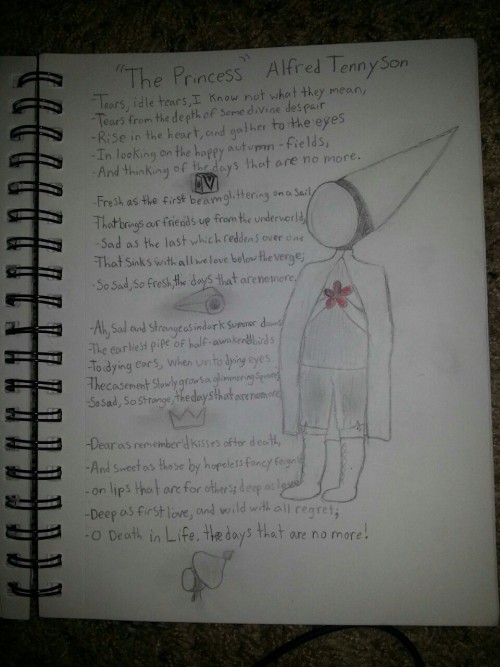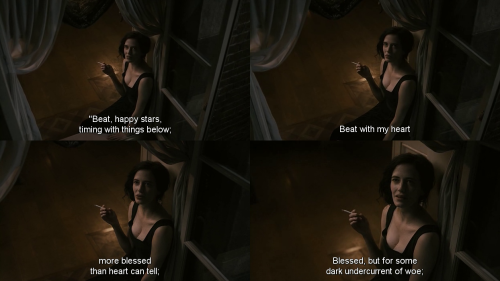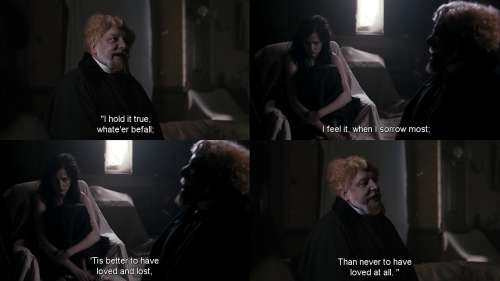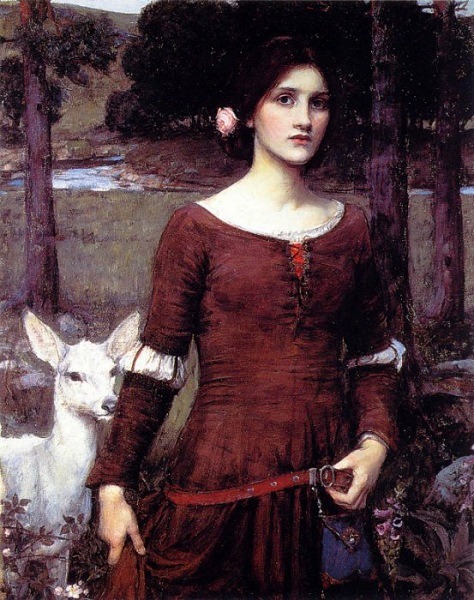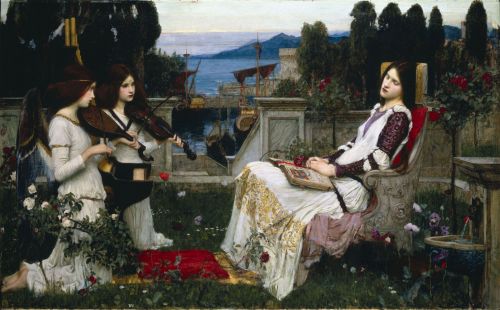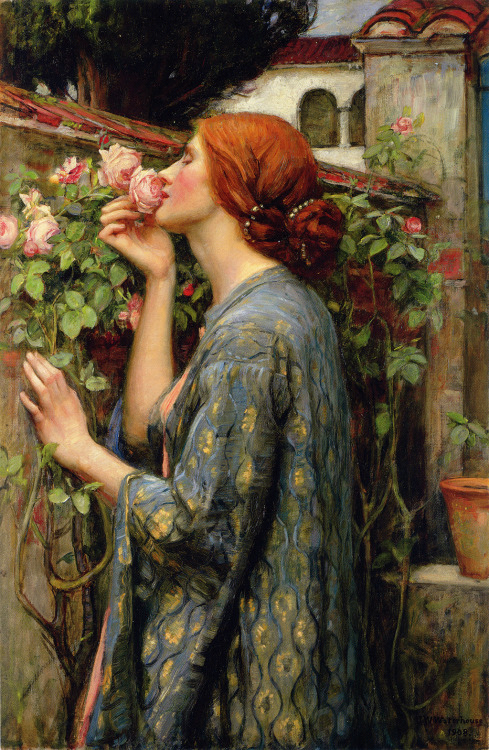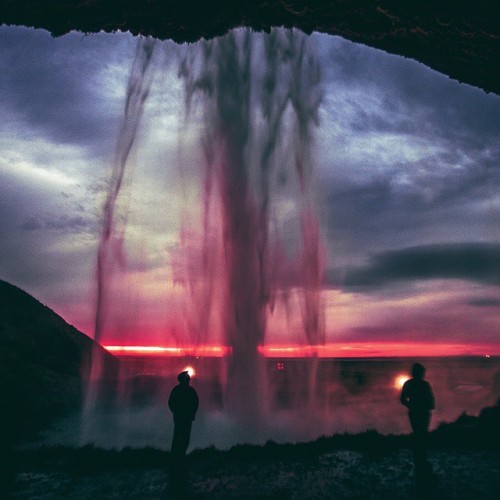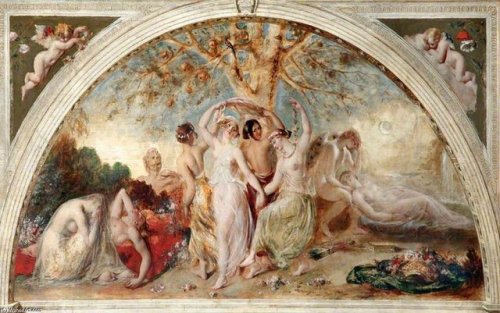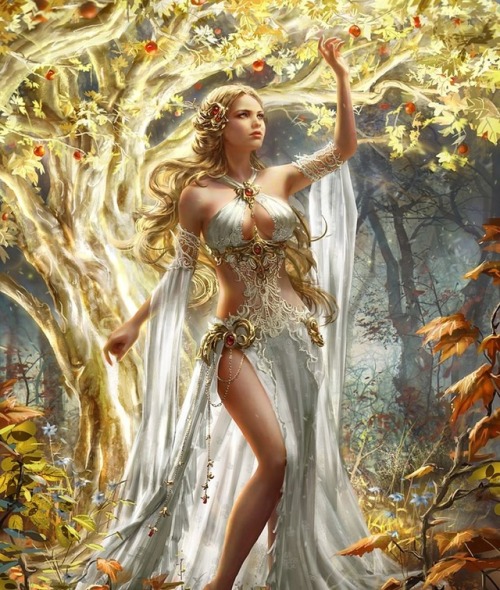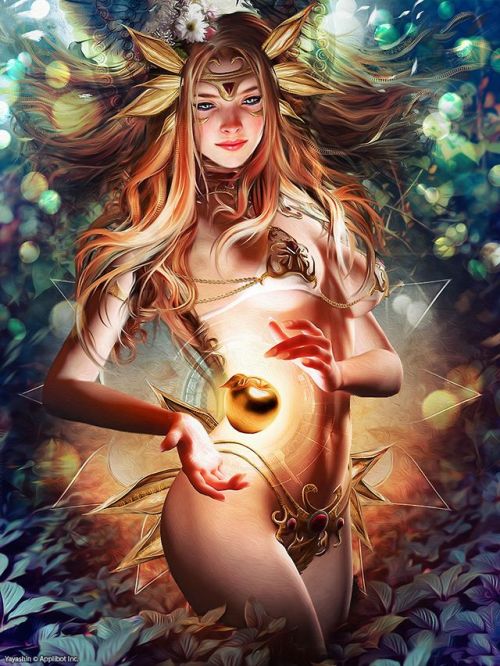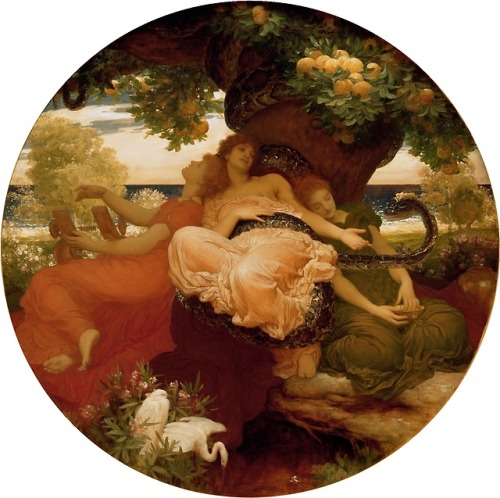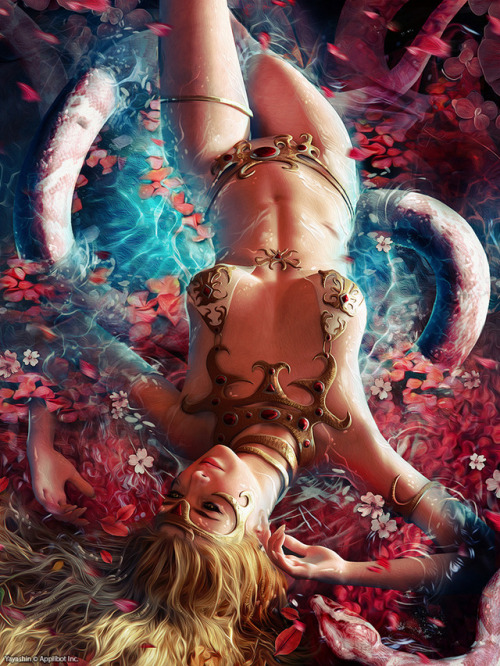#alfred tennyson
There was a poem I read a while back and it reminded me of monument valley. It’s called “the princess” by Alfred Tennyson. So I drew this.
“The princess”
Tears idle tears I know not what they mean
Tears from the depth of some divine despair
Rise in the heart and gather to the eyes
In looking on the happy autumn-fields
And thinking of the days that are no more.
Fresh as the first beam glittering on a sail
That brings our friends up from the underworld
Sad as the last which reddens over one
That sinks with all we love below the verge
So sad, so fresh, the days that are no more.
Ah, sad and strange as in dark summer dawns
The earliest pipe of half awakened birds
To dieing ears, when unto dieing eyes
The casement slowly grows a glimmering square
So sad, so strange, the days that are no more
Dear as renember’d kisses after death
And sweet as those by hopeless fancy feigned
On lips that are for others; deep as love
Deep as first love and wild with all regret;
O death in life the days that are no more!
Post link
Penny Dreadful S03E01 (The Day Tennyson Died)
Vanessa Ives (Eva Green) recites the verses 679-683 (8th stanza of Part XVIII) from the poem Maud, published in the collection Maud and other poems in 1855. The poem, whose narrator passionately falls in love with a woman, is said to have been inspired by Charlotte Rosa Baring.
Post link
Penny Dreadful S03E01 (The Day Tennyson Died)
Ferdinand Lyle (Simon Russel Beale) pays Vanessa Ives (Eva Green) a visit and tells her about Alfred Tennyson’s death. He then quotes In Memoriam A.H.H., a poem written by Tennyson over 17 years and completed in 1849. It is a requiem for the poet’s friend Arthur Henry Hallam, divided into 133 cantos and written in four-line stanzas of iambic tetrameter; the rhyme scheme is ABBA.The verses quoted are from the last stanza of the XXVII canto
I hold it true, whate'er befall;
I feel it, when I sorrow most;
‘Tis better to have loved and lost
Than never to have loved at all.
Post link
The Lady Clare (1900), by J.W. Waterhouse
Waterhouse was a fan of Alfred Tennyson and used his poems as subject for several of his paintings. The poem with the same title as this painting was published in 1842 (together with The Lady of Shalott and Mariana in the South) and describes the victory of true love over class. Lady Clare appears on her wedding day in a peasant’s dress to reveal her poor heritage to her rich lover – Waterhouse liked to paint women taking destiny in their own hands. Fortunately, Lord Ronald decides to marry her anyway so this story has a happy ending.
The painting was exhibited to support impoverished colleagues and raised £450 when it was sold to the barrister Ernest Moon.
The Lady Clare
It was the time when lilies blow,
And clouds are highest up in air,
Lord Ronald brought a lily-white doe
To give his cousin, Lady Clare.
I trow they did not part in scorn-
Lovers long-betroth’d were they:
They too will wed the morrow morn:
God’s blessing on the day!
‘He does not love me for my birth,
Nor for my lands so broad and fair;
He loves me for my own true worth,
And that is well,’ said Lady Clare.
In there came old Alice the nurse,
Said, 'Who was this that went from thee?’
'It was my cousin,’ said Lady Clare,
'To-morrow he weds with me.’
'O God be thank’d!’ said Alice the nurse,
'That all comes round so just and fair:
Lord Ronald is heir of all your lands,
And you are not the Lady Clare.’
'Are ye out of your mind, my nurse, my nurse?’
Said Lady Clare, 'that ye speak so wild?’
'As God’s above,’ said Alice the nurse,
'I speak the truth: you are my child.
'The old Earl’s daughter died at my breast;
I speak the truth, as I live by bread!
I buried her like my own sweet child,
And put my child in her stead.’
'Falsely, falsely have ye done,
O mother,’ she said, ’ if this be true,
To keep the best man under the sun
So many years from his due.’
'Nay now, my child,’ said Alice the nurse,
'But keep the secret for your life,
And all you have will be Lord Ronald’s,
When you are man and wife.’
'If I’m a beggar born,’ she said,
'I will speak out, for I dare not lie.
Pull off, pull off, the brooch of gold,
And fling the diamond necklace by.’
'Nay now, my child,’ said Alice the nurse,
'But keep the secret all ye can.’
She said, 'Not so: but I will know
If there be any faith in man.’
'Nay now, what faith?’ said Alice the nurse,
'The man will cleave unto his right.’
'And he shall have it,’ the lady replied,
'Tho’ I should die to-night.’
'Yet give one kiss to your mother dear!
Alas, my child, I sinn’d for thee.’
'O mother, mother, mother,’ she said,
'So strange it seems to me.
'Yet here’s a kiss for my mother dear,
My mother dear, if this be so,
And lay your hand upon my head,
And bless me, mother, ere I go.’
She clad herself in a russet gown,
She was no longer Lady Clare:
She went by dale, and she went by down,
With a single rose in her hair.
The lily-white doe Lord Ronald had brought
Leapt up from where she lay,
Dropt her head in the maiden’s hand,
And follow’d her all the way.
Down stepped Lord Ronald from his tower:
'O Lady Clare, you shame your worth!
Why come you dressed like a village maid,
That are the flower of the earth?’
'If I come dressed like a village maid,
I am but as my fortunes are:
I am a beggar born,’ she said,
'And not the Lady Clare.’
'Play me no tricks,’ said Lord Ronald,
'For I am yours in word and in deed.
Play me no tricks,’ said Lord Ronald,
'Your riddle is hard to read.’
O and proudly stood she up!
Her heart within her did not fail:
She look’d into Lord Ronald’s eyes,
And told him all her nurse’s tale.
He laugh’d a laugh of merry scorn:
He turn’d and kiss’d her where she stood:
'If you are not the heiress born,
And I,’ said he, 'the next in blood-
'If you are not the heiress born,
And I,’ said he, ’ the lawful heir,
We two will wed to-morrow morn,
And you shall still be Lady Clare.’
Alfred, Lord Tennyson
Post link
Mariana in the South (1897), by J.W. Waterhouse
This painting of Mariana refers again to a poem by Tennyson, this time published in 1830 (see below). The character originates from Shakespeare’s “Measure by Measure” in which Mariana withers by loneliness as her lover, Duke Angelo, chases another woman.
With blackest moss the flower-plots
Were thickly crusted, one and all:
The rusted nails fell from the knots
That held the pear to the gable-wall.
The broken sheds look’d sad and strange:
Unlifted was the clinking latch;
Weeded and worn the ancient thatch
Upon the lonely moated grange.
She only said, ‘My life is dreary,
He cometh not,’ she said;
She said, 'I am aweary, aweary,
I would that I were dead!’
Her tears fell with the dews at even;
Her tears fell ere the dews were dried;
She could not look on the sweet heaven,
Either at morn or eventide.
After the flitting of the bats,
When thickest dark did trance the sky,
She drew her casement-curtain by,
And glanced athwart the glooming flats.
She only said, 'The night is dreary,
He cometh not,’ she said;
She said, 'I am aweary, aweary,
I would that I were dead!’
Upon the middle of the night,
Waking she heard the night-fowl crow:
The cock sung out an hour ere light:
From the dark fen the oxen’s low
Came to her: without hope of change,
In sleep she seem’d to walk forlorn,
Till cold winds woke the gray-eyed morn
About the lonely moated grange.
She only said, 'The day is dreary,
He cometh not,’ she said;
She said, 'I am aweary, aweary,
I would that I were dead!’
About a stone-cast from the wall
A sluice with blacken’d waters slept,
And o'er it many, round and small,
The cluster’d marish-mosses crept.
Hard by a poplar shook alway,
All silver-green with gnarlèd bark:
For leagues no other tree did mark
The level waste, the rounding gray.
She only said, 'My life is dreary,
He cometh not,’ she said;
She said, 'I am aweary, aweary,
I would that I were dead!’
And ever when the moon was low,
And the shrill winds were up and away,
In the white curtain, to and fro,
She saw the gusty shadow sway.
But when the moon was very low,
And wild winds bound within their cell,
The shadow of the poplar fell
Upon her bed, across her brow.
She only said, 'The night is dreary,
He cometh not,’ she said;
She said, 'I am aweary, aweary,
I would that I were dead!’
All day within the dreamy house,
The doors upon their hinges creak’d;
The blue fly sung in the pane; the mouse
Behind the mouldering wainscot shriek’d,
Or from the crevice peer’d about.
Old faces glimmer’d thro’ the doors,
Old footsteps trod the upper floors,
Old voices call’d her from without.
She only said, 'My life is dreary,
He cometh not,’ she said;
She said, 'I am aweary, aweary,’
I would that I were dead!’
The sparrow’s chirrup on the roof,
The slow clock ticking, and the sound
Which to the wooing wind aloof
The poplar made, did all confound
Her sense; but most she loathed the hour
When the thick-moted sunbeam lay
Athwart the chambers, and the day
Was sloping toward his western bower.
Then, said she, 'I am very dreary,
He will not come,’ she said;
She wept, 'I am aweary, aweary,
O God, that I were dead!’
Post link
Saint Cecilia (1895), by J.W. Waterhouse
The fascination that Waterhouse had with women in poetry, persisted in this painting of Saint Cecilia. The scene is based on the following strophe:
“In a clear walled city on the sea, Near gilded organ pipes … slept Saint Cecily.”
It originates from Tennyson’s poem “The Palace of Art” (first published in 1832, revised in 1842).
The beautifully illustrated songbook on her lap, the scenery with many flowers and the two angels appearing in her sleep, create a very romantic and peaceful atmosphere. This, together with the extensive use of bright colours, makes it very much a Pre-Raphaelite painting. It was bought by Andrew Lloyd Webber in 2008.
Post link
The Lady of Shalott (1894), by J.W. Waterhouse
Just like with the previous painting of Ophelia, Waterhouse returned again to an old subject. With The Lady of Shalott, he painted a different episode from the poem by Tennyson (see the blog on the 1888 version for the complete text of the poem).
Here the Lady has taken the decision to disobey the curse and go into the open to look for her beloved Knight Lancelot. Yet a golden thread is bound around her legs, symbolizing that she cannot escape from her fate. The model he used is clearly the same as that for Circe. There is a lot of speculation about who Waterhouse’s models were. Besides one scribbled address on an envelope, no names are sure. On YouTube you can find a nice series on this subject: www.youtube.com/watch?v=Y4dc1oE7R8A . Highly recommended!
Post link
The Soul of the Rose (1908), by J.W. Waterhouse
“And the soul of the rose went into my blood” is a phrase from one of Alfred Tennyson’s most famous poems: “Maud”. Waterhouse made a lot of paintings that were inspired by the poetry of Lord Tennyson and this is one of them. Here, he just used it as a vehicle to combine the typical Pre-Raphaelite themes of feminine beauty and the beauty of nature. Other references to the poem are lacking. It is also a perfect example of how Waterhouse conveyed the sense of smell to a painting.
From “Maud, Part One” by Alfred Lord Tennyson (1855)
Come into the garden, Maud,
For the black bat, Night, has flown,
Come into the garden, Maud,
I am here at the gate alone;
And the woodbine spices are wafted abroad,
And the musk of the roses blown.
For a breeze of morning moves,
And the planet of Love is on high,
Beginning to faint in the light that she loves
On a bed of daffodil sky,
To faint in the light of the sun she loves,
To faint in his light, and to die.
All night have the roses heard
The flute, violin, bassoon;
All night has the casement jessamine stirr’d
To the dancers dancing in tune
Till a silence fell with the waking bird,
And a hush with the setting moon.
I said to the lily, “There is but one
With whom she has heart to be gay.
When will the dancers leave her alone?
She is weary of dance and play. ”
Now half to the setting moon are gone,
And half to the rising day;
Low on the sand and loud on the stone
The last wheel echoes away.
I said to the rose, “The brief night goes
In babble and revel and wine.
O young lordlover, what sighs are those
For one that will never be thine?
But mine, but mine,” so I swear to the rose,
“For ever and ever, mine. ”
And the soul of the rose went into my blood,
As the music clash’d in the hall;
And long by the garden lake I stood,
For I heard your rivulet fall
From the lake to the meadow and on to the wood,
Our wood, that is dearer than all;
From the meadow your walks have left so sweet
That whenever a March-wind sighs
He sets the jewelprint of your feet
In violets blue as your eyes,
To the woody hollows in which we meet
And the valleys of Paradise.
The slender acacia would not shake
One long milk-bloom on the tree;
The white lake-blossom fell into the lake,
As the pimpernel dozed on the lea;
But the rose was awake all night for your sake,
Knowing your promise to me;
The lilies and roses were all awake,
They sigh’d for the dawn and thee.
Queen rose of the rosebud garden of girls,
Come hither, the dances are done,
In gloss of satin and glimmer of pearls,
Queen lily and rose in one;
Shine out, little head, sunning over with curls,
To the flowers, and be their sun.
There has fallen a splendid tear
From the passion-flower at the gate.
She is coming, my dove, my dear;
She is coming, my life, my fate;
The red rose cries, “She is near, she is near;”
And the white rose weeps, “She is late;”
The larkspur listens, “I hear, I hear;”
And the lily whispers, “I wait.”
She is coming, my own, my sweet;
Were it ever so airy a treat,
My heart would hear her and beat,
Were it earth in an earthy bed;
My dust would hear her and beat,
Had I lain for a century dead;
Would start and tremble under her feet,
And blossom in purple and red.
Post link
“If I had a flower for every time I thought of you…I could walk through my garden forever.” -Alfred Tennyson
Post link
Jurassic Jaunt 7: Swanage Around The Globe On A Tilly Whim
Jurassic Jaunt 7: Swanage Around The Globe On A Tilly Whim
Before Swanning Around Swanage, A Corfe Whim
So I arrived in Swanage on the bus with trepidation, as I knew it was the last Bank Holiday of the summer, a busy time; and further more there was a steam festival at Corfe Castle which of course many people stayed at Swanage and took the train up to the festival. I was planning to go to a remote campsite called California Farm, but it was the top of…

Yaşamak gecenin tüm karanlığına rağmen, buğulu bir cama güneşi çizebilmektir.
- Alfred Tennyson
Post link
“Luminous, gemlike, ghostlike, deathlike,”—Alfred Tennyson, from Maud: Part I, 1855.
(viamegairea)
The Hesperides
THE Northwind fall’n, in the newstarréd night
Zidonian Hanno, voyaging beyond
The hoary promontory of Soloë
Past Thymiaterion, in calmèd bays,
Between the Southern and the Western Horn,
Heard neither warbling of the nightingale,
Nor melody o’ the Lybian lotusflute
Blown seaward from the shore; but from a slope
That ran bloombright into the Atlantic blue,
Beneath a highland leaning down a weight
Of cliffs, and zoned below with cedarshade,
Came voices, like the voices in a dream,
Continuous till he reached the other sea.
SONG
I
The golden apple, the golden apple, the hallowed fruit,
Guard it well, guard it warily,
Singing airily,
Standing about the charmèd root.
Round about all is mute,
As the snowfield on the mountain-peaks,
As the sandfield at the mountain-foot.
Crocodiles in briny creeks
Sleep and stir not: all is mute.
If ye sing not, if ye make false measure,
We shall lose eternal pleasure,
Worth eternal want of rest.
Laugh not loudly: watch the treasure
Of the wisdom of the West.
In a corner wisdom whispers. Five and three
(Let it not be preached abroad) make an awful mystery.
For the blossom unto three-fold music bloweth;
Evermore it is born anew;
And the sap to three-fold music floweth,
From the root
Drawn in the dark,
Up to the fruit,
Creeping under the fragrant bark,
Liquid gold, honeysweet thro’ and thro’.
Keen-eyed Sisters, singing airily,
Looking warily
Every way,
Guard the apple night and day,
Lest one from the East come and take it away.
II
Father Hesper, Father Hesper, watch, watch, ever and aye,
Looking under silver hair with a silver eye.
Father, twinkle not thy stedfast sight;
Kingdoms lapse, and climates change, and races die;
Honour comes with mystery;
Hoarded wisdom brings delight.
Number, tell them over and number
How many the mystic fruit-tree holds,
Lest the redcombed dragon slumber
Rolled together in purple folds.
Look to him, father, lest he wink, and the golden apple be stol’n away,
For his ancient heart is drunk with overwatchings night and day,
Round about the hallowed fruit tree curled—
Sing away, sing aloud and evermore in the wind, without stop,
Lest his scalèd eyelid drop,
For he is older than the world.
If he waken, we waken,
Rapidly levelling eager eyes.
If he sleep, we sleep,
Dropping the eyelid over the eyes.
If the golden apple be taken
The world will be overwise.
Five links, a golden chain, are we,
Hesper, the dragon, and sisters three,
Bound about the golden tree.
III
Father Hesper, Father Hesper, watch, watch, night and day,
Lest the old wound of the world be healèd,
The glory unsealèd,
The golden apple stol’n away,
And the ancient secret revealèd.
Look from west to east along:
Father, old Himla weakens, Caucasus is bold and strong.
Wandering waters unto wandering waters call;
Let them clash together, foam and fall.
Out of watchings, out of wiles,
Comes the bliss of secret smiles,
All things are not told to all,
Half round the mantling night is drawn,
Purplefringed with even and dawn.
Hesper hateth Phosphor, evening hateth morn.
IV
Every flower and every fruit the redolent breath
Of this warm seawind ripeneth,
Arching the billow in his sleep;
But the land-wind wandereth,
Broken by the highland-steep,
Two streams upon the violet deep:
For the western sun and the western star,
And the low west wind, breathing afar,
The end of day and beginning of night
Make the apple holy and bright,
Holy and bright, round and full, bright and blest,
Mellowed in a land of rest;
Watch it warily day and night;
All good things are in the west,
Till midnoon the cool east light
Is shut out by the round of the tall hillbrow;
But when the fullfaced sunset yellowly
Stays on the flowering arch of the bough,
The luscious fruitage clustereth mellowly,
Goldenkernelled, goldencored,
Sunset ripened, above on the tree,
The world is wasted with fire and sword,
But the apple of gold hangs over the sea,
Five links, a golden chain, are we,
Hesper, the dragon, and sisters three,
Daughters three,
Bound about
All round about
The gnarlèd bole of the charmèd tree,
The golden apple, the golden apple, the hallowed fruit,
Guard it well, guard it warily,
Watch it warily,
Singing airily,
Standing about the charmèd root.
Post link

